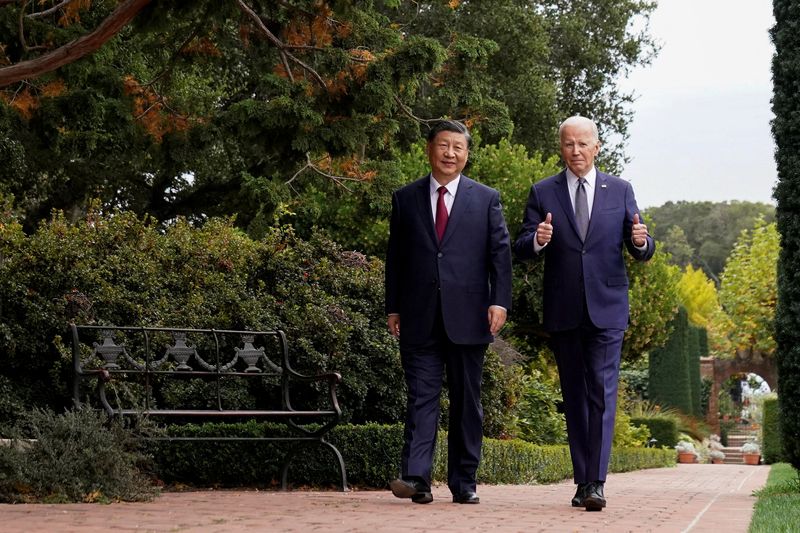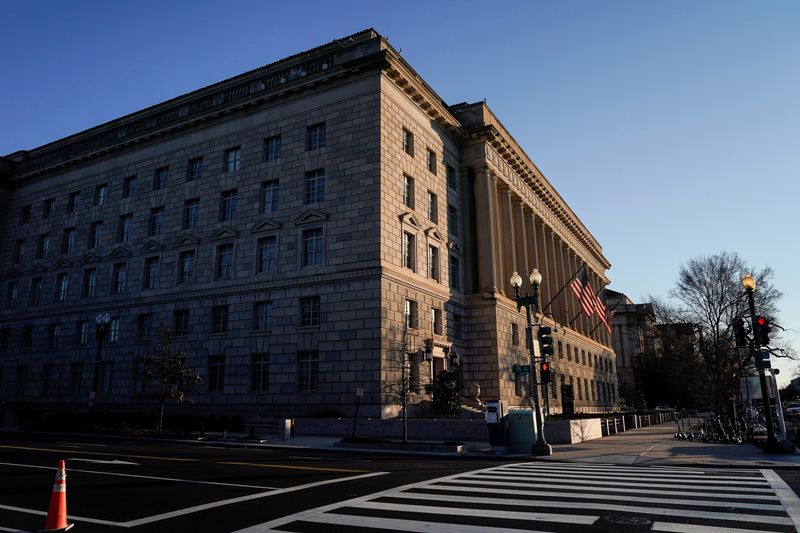By Alexandra Alper and Michael Martina
WASHINGTON (Reuters) -The Biden administration on Thursday removed the Chinese Ministry of Public Security's Institute of Forensic Science from a trade sanction list, part of a bid to convince Beijing to do more to halt the flow of the synthetic opioid fentanyl into the United States.
Washington put the institute on the list in 2020 over alleged abuses against Uyghurs and other minority groups, effectively barring it from receiving most goods from U.S. suppliers.
Former Chinese ambassador to the U.S. Qin Gang last year described it as "shocking" that the U.S., which had expressed frustration over Beijing's lack of cooperation on fentanyl, would sanction an institute he described as essential to controlling the drug.
The Chinese embassy in Washington did not immediately respond to a request for comment.
Reuters had previously reported the institute would be removed as Biden sought more cooperation from Beijing on fentanyl in a meeting with China's President Xi Jinping on Wednesday in San Francisco at the Asia-Pacific Economic Cooperation (APEC) forum.
As part of the meeting, the men agreed to create a working group on counter-narcotics cooperation. The White House's National Security Council did not respond to a request for comment on what, beyond creating the working group, China pledged to do to stem shipments of the deadly narcotic.
The move was criticized by human rights activists and Republicans, who accused the Biden administration of going soft on Beijing over its treatment of Uyghurs.
Rayhan Asat, a human rights lawyer of Uyghur heritage, said she recognized the pressing issue posed by fentanyl, but that the U.S. decision raised questions about U.S. commitment to addressing China's rights abuses.
"The United States has a legal obligation, under federal law, to address atrocity crimes once they have been determined as such. The question then arises: should addressing one issue take precedence over addressing the genocide? Can't we address both?" she said.

Blocking fentanyl "precursor" chemicals has been a priority for Washington as the rate of overdose deaths involving the drug more than tripled from 2016 through 2021, according to the U.S. Centers for Disease Control and Prevention (CDC).
The removal, according to a notice posted in the Federal Register, came after a "removal proposal" was received and reviewed, the department said in the posting, by a committee composed of representatives of the departments of Commerce, State, Defense, Energy, and sometimes, the Treasury.
